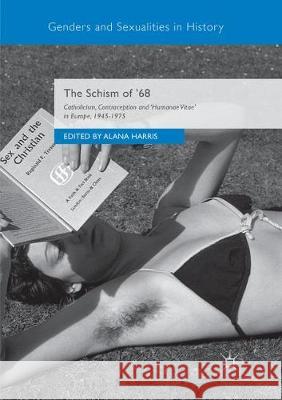The Schism of '68: Catholicism, Contraception and Humanae Vitae in Europe, 1945-1975 » książka
topmenu
The Schism of '68: Catholicism, Contraception and Humanae Vitae in Europe, 1945-1975
ISBN-13: 9783030099954 / Angielski / Miękka / 2018 / 377 str.
The Schism of '68: Catholicism, Contraception and Humanae Vitae in Europe, 1945-1975
ISBN-13: 9783030099954 / Angielski / Miękka / 2018 / 377 str.
cena 605,23
(netto: 576,41 VAT: 5%)
Najniższa cena z 30 dni: 539,74
(netto: 576,41 VAT: 5%)
Najniższa cena z 30 dni: 539,74
Termin realizacji zamówienia:
ok. 22 dni roboczych
Bez gwarancji dostawy przed świętami
ok. 22 dni roboczych
Bez gwarancji dostawy przed świętami
Darmowa dostawa!
Kategorie BISAC:
Wydawca:
Palgrave MacMillan
Seria wydawnicza:
Język:
Angielski
ISBN-13:
9783030099954
Rok wydania:
2018
Dostępne języki:
Numer serii:
000414446
Ilość stron:
377
Waga:
0.50 kg
Wymiary:
21.08 x 21.59 x 2.03
Oprawa:
Miękka











